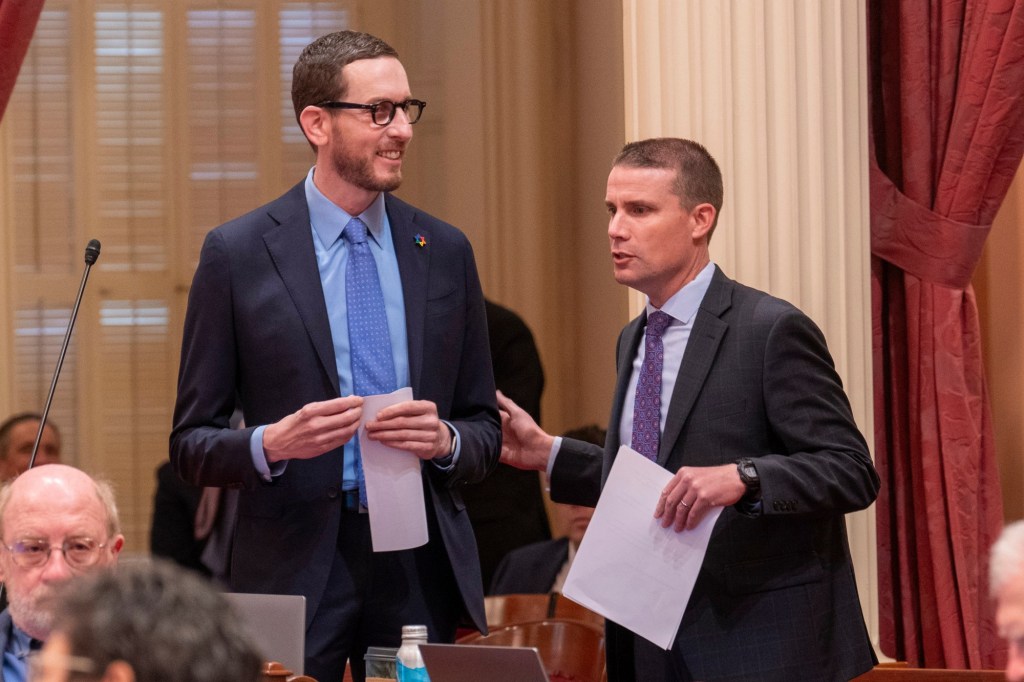
California is no stranger to bold legislative proposals, but Senator Scott Wiener’s latest bill, targeting fossil fuel companies through a series of private lawsuits, raises serious concerns about its unintended consequences. While the bill may aim to hold fossil fuel companies accountable for climate-related damage, in reality, it will do little to mitigate climate change and a lot to harm California consumers and businesses.
The bill has three main components: granting individuals the right to sue fossil fuel companies for climate-related damages, allowing private insurers to file subrogation claims against these companies, and requiring the FAIR Plan to assess the feasibility of suing fossil fuel companies for climate damage. On paper, this might sound like a bold step toward addressing the climate crisis. In practice, it’s a recipe for higher gas prices, fewer refiners in the state, and an even more precarious economic situation for Californians.
Higher Gas Prices Are Inevitable
First and foremost, this bill will almost certainly result in higher gas prices for Californians. Legal actions like these do not happen in a vacuum. Fossil fuel companies, already operating on slim margins in a heavily regulated state, will inevitably pass the costs of defending against a tidal wave of lawsuits onto consumers. California already has some of the highest gas prices in the nation, thanks in part to stringent environmental regulations and taxes. Adding yet another layer of financial pressure on refiners will push prices even higher, hurting working families and small businesses that rely on affordable fuel.
This comes at a time when the government has been actively working to lower gas prices for Californians. Governor Gavin Newsom has repeatedly pledged to take steps to bring relief at the pump. How, then, does it make sense to enact a bill that will have the opposite effect? It’s a contradictory approach that undermines efforts to make life more affordable for Californians.
Driving Refiners Out of the State
California’s refining industry is already teetering on the edge, with several facilities having closed or converted to renewable operations in recent years due to regulatory pressures and high operating costs. This bill will only accelerate that trend. Refiners operating in California will face mounting legal risks and costs, prompting many to consider whether it’s worth continuing to do business in the state at all. When refiners leave, supply decreases, and prices go up—a simple economic reality that Californians will bear the brunt of.
We’ve seen this pattern before. Just as insurers are fleeing California due to the mounting risks of wildfires and the inability to maintain profitability in an increasingly litigious and regulated environment, refiners could follow suit. And when they do, Californians will be left with fewer options, higher costs, and less stability in critical industries. The state’s efforts to be a climate leader shouldn’t come at the expense of the economic well-being of its residents.
Do We Even Know Who’s to Blame?
Perhaps the most troubling aspect of this bill is its assumption of blame. It effectively declares fossil fuel companies guilty for climate-related damage, including wildfires, without addressing the complexity of wildfire causation. Wildfires in California are a multifaceted issue. Some are caused by downed power lines, others by arson, and still others by natural factors like lightning strikes. How can we justify singling out fossil fuel companies for lawsuits when investigations of some of the most destructive wildfires in California’s history have found the culprits were arsonists and power lines?
Targeting fossil fuel companies may be politically expedient, but it’s not a scientifically grounded approach to addressing California’s wildfire crisis. If the goal is truly to reduce wildfire risk, resources should be focused on wildfire prevention efforts, such as improving forest management, upgrading electrical infrastructure, and addressing human-caused ignition sources. Blaming fossil fuel companies for every climate-related problem oversimplifies a complex issue and distracts from real solutions.
A Path Forward
Senator Wiener’s bill may be well-intentioned, but its consequences will fall squarely on the shoulders of Californians who are already struggling with high costs of living. Instead of driving up gas prices and driving out refiners, we should focus on solutions that address the root causes of our challenges. Wildfire prevention, investments in clean energy, and meaningful climate policies that don’t punish consumers or businesses should be our priorities.
Let’s not forget that California’s leadership on climate change should be about creating a sustainable future—one that balances environmental responsibility with economic stability. This bill, as it stands, does neither. Instead of pursuing costly litigation with dubious benefits, let’s work together to find real solutions that benefit all Californians.
George Peppas is the president & CEO of the Coalition of California Chambers. The California Coalition of Chambers of Commerce is a prominent alliance of leading business advocacy groups and Chambers of Commerce across California.
Originally Published:



